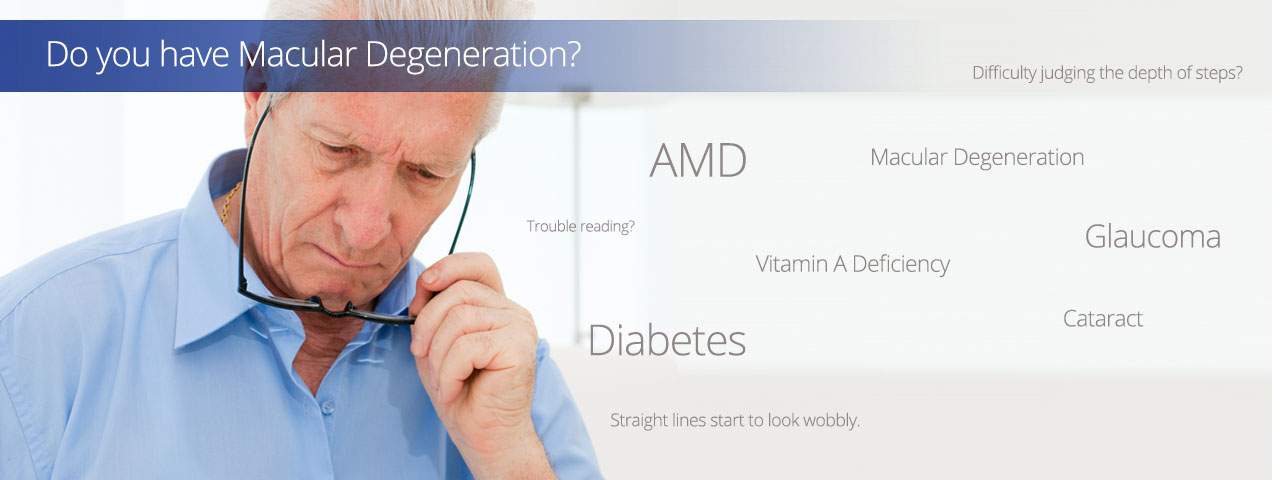
Age-related macular degeneration (AMD) refers to a group of disorders affecting the retina’s macula, located in the central region of the retina. Maculas have special structural features that enable one to see images in high-resolution. A damaged macula, however, greatly affects this ability, resulting in significant central vision loss.
The 2 Types of Macular Degeneration
There exist two types of macular degeneration: “dry” and “wet.” 85-90% of AMD cases fall into the dry category, while 10-15% fall into the wet category. The wet form of AMD tends to cause the most severe vision loss.
Dry form. This is characterized by the presence of yellow deposits, known as drusen, in the macula. Their growth leads to dimming or distortion of vision, especially when reading. When dry AMD reaches an advanced stage, the light-sensitive layer of cells in the macula thins out, resulting in atrophy (or tissue death). In its most advanced stages, this can lead to blind spots or loss of central vision.
Wet form. The “wet” form of macular degeneration refers to the growth of abnormal blood vessels under the macula. When this happens, the blood vessels leak blood and fluid into the retina, resulting in distorted vision. This can make straight lines appear wavy and can result in blind spots. Scarring can occur, resulting in permanent central vision loss.
While macular degeneration has no cure, it can be managed and vision can be preserved. Contact today and your eye doctor will examine your eyes and speak with you to discuss the options.
How Does Macular Degeneration Affect Vision?
- Inability to clearly see objects over time
- Straight lines appear distorted (wavy or crooked)
- Changes in color perception
- Central vision loss
- Difficulty seeing in low-light conditions
- Blurred vision
How Your Eye Doctor Can Help
in aims to keep you independent and help you do the things you enjoy. We are dedicated to helping preserve your vision and improve your quality of life.Contact us today to book your appointment and to discuss treatment options.